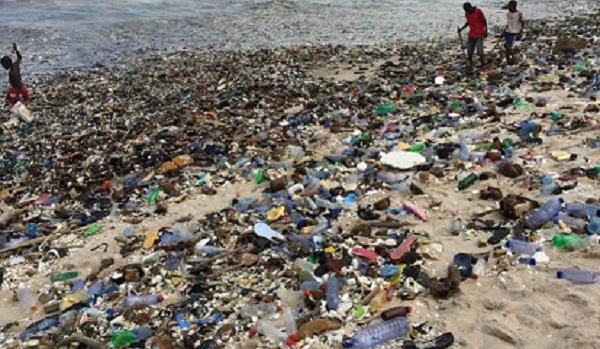
When poor drainage, bad attitude and poor sanitation intertwine
Ghana seems to be no stranger to floods, but this year’s flooding in June, which claimed nearly 20 lives in the country, was the most painful of all in recent times.
It was sad to hear that people died so easily as a result of a normal rainfall.
Advertisement
Frankly, no excuse can be offered to ease the pain and devastation that the loved ones of those who lost their lives are still going through.
Ghana has witnessed flooding on so many occasions and on each occasion, innocent lives are lost and property worth millions of cedis destroyed.
Gradually, flooding is leaving a permanent mark on this country.
This is very terrible and distressing because it seems pointless to remain trapped in this condition annually.
This problem can, however, be linked to three major reasons: poor drainage, poor sanitation and bad attitude.
Poor drainage
Undeniably, the way drains are constructed in this country is not only poor but an eyesore. Our drainage systems are so bad that they cause pavement distresses and premature failure of our roads.
Major drains in the big cities, for instance, are not well constructed to connect water flow to water courses, creeks, rivers and the sea to ensure a neat drainage discharge.
Again, there seems to be no proper coordination between drainage designers and road engineers to ensure that there is always a proper flow and control of stormy waters.
There are no substantive plans which constantly ensure routine maintenances and the dredging of drains that are constructed.
Bad attitude
Human attitude is also an important factor.
Shoddy work has become deeply rooted in the fabric of the Ghanaian society and why we allow this to happen can best be explained by leadership.
Shoddily constructed drains do not only destroy roads but bring hardship on people.
Most individuals and companies neglect their duties by failing to do the jobs they have been paid to do.
This harrowing situation makes it difficult for us to pursue a clean environment.
Certain people deliberately litter the environment by dumping refuse on streets and in gutters, forgetting that it will eventually block the drains and result in flooding when it rains.
They pollute the environment without paying attention to health implications such as malaria, cholera and, in certain cases, death.
Although human behaviour is ethical, there is little to show for it.
Influential people and organisations in the country have turned a blind eye to this problem. District chief executives and religious bodies have ignored their roles in this regard.
For instance, the Catholic and Presbyterian churches have policies on the environment but they are not well utilised.
It is very important to highlight how problematic, irritating, disturbing and damaging our environment has become as a result of poor sanitation.
As a country, we do not pay proper attention to waste and how it should be managed.
Refuse is dumped haphazardly in places such as streets, highways, gutters, communication and water hydrants. Although most of the refuse we generate in Ghana, particularly in the cities, come from packaging, we lack the expertise to handle, collect and recycle them.
Sadly, the country’s record in tackling sanitation is not encouraging.
By setting up more recycling factories in Ghana, the government would be providing jobs for a section of the jobless group, reduce unemployment and promote the use of reusable and recycled materials.
The factories can also recover organic materials for energy and fertiliser production.
But all these cannot be achieved without the necessary financial capital to set the factories up.
This is why the government should develop a unique national waste management strategy for the country.
Luckily, sanitation has been pushed to the top of the political agenda with the establishment of the Ministry of Sanitation.
President Nana Addo Dankwa Akufo-Addo has also set himself a target to ensure a clean environment.
Therefore, fresh strategic programmes should be developed for this country with a special focus on children and religious organisations.
They should be put on the
This will help lock in them a culture change that could help save this country.
Henceforth, coconut sellers, street traders, shop owners, big supermarkets, sachet and
They must support any government environmental clean-up programme aimed at curbing floods and beautifying the environment.



